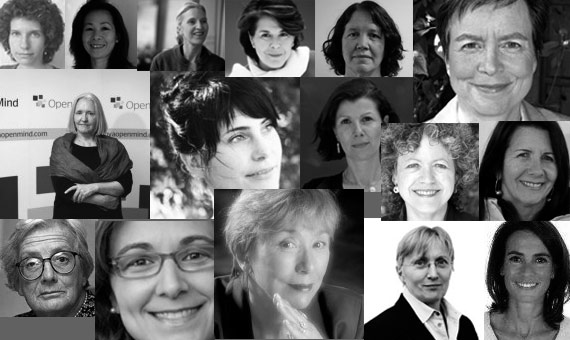International Women’s Day: March 8
Some question the need to celebrate women’s day and dedicate 24 hours to the female gender around the world. The figures don’t lie and they hold the answer: as the World Economic Forum predicted in 2015, the gender gap will not be overcome until 2133. This means there are still 117 years to celebrate international women’s day and promote equality, parity, women’s visibility and their access to education, as well as the respect for their fundamental rights around the world.
“Ours is the first generation that has the potential to put an end to poverty. But this generation can also transform gender relations and empower women and girls and humanity as a whole”.
Phumzile Milambo-Ngcuka, Deputy Secretary-General and Executive Director of UN Women.
UN Women is the United Nations agency dedicated to promoting gender equality and the empowerment of women. In one of its latest reports, “Progress of the World’s Women 2015-2016: Transforming Economies, Realizing Rights”, it claims that, apparently, today there is renewed consensus to consider gender equality as something imperative. Why is there greater awareness now?
2015: A year of progress toward gender equality
Several important things occurred in 2015 in the struggle for gender equality. The first and most significant one, the adoption of The 2030 Agenda for Sustainable Development by 193 countries. One of the goals is to eradicate poverty by 2030. Moreover, in terms of gender and equality, the agenda includes a specific objective on the empowerment of women and girls, in addition to gender-sensitive goals in another 11 objectives. Will United Nations manage to bring the World Economic Forum’s predictions forward by 103 years? Let’s hope so!
2015 was also the 20th anniversary of the Beijing Platform for Action , “the most progressive plan ever implemented for promoting women’s rights”, according to UN Women; female mutilation has been banned in Nigeria and the United Nations Security Council has unanimously adopted Resolution 2242, which recognizes the fundamental role of women in favor of peace and security; Nepal has elected for the first time a female president, Bidhya Bhandari, and the domestic violence awareness campaign “Paint the World Orange” has filled the world with color in emblematic places around the world, from the Niagara Falls to the Little Mermaid in Copenhagen or the Jordanian city of Petra.

The figures of inequality and shame
However, despite the progress made in the number and scope of the initiatives to promote gender equality, women and girls around the world are still facing many difficulties in different societies and cultures. Here are some figures to illustrate a scenario that the most privileged countries (in matters of gender and women’s rights) are not completely aware of most of the time.
- In 29 of 143 countries, husbands are the “heads of household” designated by law.
- 781 million adults and 126 million young people around the world lack basic literacy skills : more than 60% are women.
- In 26 of 143 countries, inheritance laws establish differences between men and women.
- Around the world, one out of every 3 women has experienced physical or sexual violence, mainly by a partner.
- 133 million women and girls have undergone genital mutilation in the 29 countries in Africa and the Middle East where this practice is more common.
- Women only hold 22% of the parliamentary seats around the world.
- Worldwide, three out of four men of working age (15 years or older) are part of the working population, compared to 50% in the case of women.
- On average and globally, women’s salaries are 24% lower than men’s.
- If remunerated and non-remunerated work is combined, in nearly all the countries in the world women work more hours a day than men.
- In more than 60 countries women are denied the right to acquire, change or keep their nationality.
- In Sierra Leone, a woman is 100 times more likely to die in childbirth than a woman in Canada.
Women’s potential and women in OpenMind
Laws are the basis and necessary condition for demanding and realizing gender equality. However, in practice, and particularly in the case of the poorest women or those in a situation of marginalization, there are barriers beyond the laws, such as social norms, cultural traditions or discriminatory stereotypes.
Moreover, it makes sense for all the organizations in each country to make full use of women’s talent. “Accelerating women’s progress in their workplace and setting up gender-balanced teams leads to better results and creates prosperity”, according to the consultancy firm EY.
Women are therefore a value on the rise in our society and in future ones, and this is why we at OpenMind also want to reserve them a special place, to contribute as far as possible to boosting their visibility and proving that, despite the overwhelming figures, there are women in many areas of culture, science and research who through their work not only promote the advancement of their discipline, but also improve the visibility of a gender that until now has wrongly been termed as “weak” but which in our community has displayed great strength.

Community of OpenMind female authors
OpenMind’s female authors have addressed in several articles different perspectives on gender issues: within diversity (Celia de Anca), in the world of business (Mollie Painter-Morland or Carol Adams) and as regards the shift of power in gender relations (Alison Maitland). But not only our female authors talk “about them”. At OpenMind we also have great names in fields as diverse as technology (Janet Abbate), consumer trends (Anne Lise Kjaer) or education (Jennifer M. Gidley). There is also a place for our female authors in the world of architecture (Melanie Fessel) and sustainability (Saskia Sassen), future trends (Beatriz Lara) or the economy (Clara Barrabés and Carola Moreno) and innovation in organizations (Alice Lam and Sally Wright). In the field of ethics we find names such as Mary Warnock, Kristin Shrader-Frechette or Angelika Schnieke. And more recently, with the latest book of the OpenMind series, several female authors have been incorporated who address different perspectives on European politics, like Vivien Ann Schmidt, Nieves Pérez-Solórzano or Julia Kristeva.
And to conclude and to reflect on what has been said about women, their remaining challenges, their many achievements and those who have taken part in the OpenMind books, a quote by Ban Ki-moon, United Nations Secretary General, referring to Malala Yousafzai, the winner of the Nobel Peace Prize in 2014:
“The acts filled with hatred of the extremists show what frightens them most: a girl with a book.”
Comments on this publication